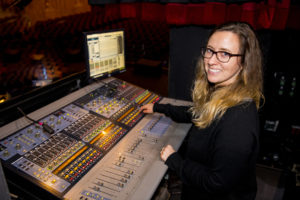
Monitors for Rosanne Cash tour, 2019, credit: C. Elliott Photography
Maya Finlay is a sound engineer that works in live sound, as well as in the studio recording, editing, mixing and producing. Maya freelances and works for the SFJAZZ Center as well as Dolby Laboratories and recently has started touring with Rosanne Cash as her Monitor Engineer. She has been working in professional audio for the past 11 years.
Maya has a B.A. in Spanish and Portuguese, Language and Culture, from the University of Colorado, Boulder, and Certificates in Sound Recording and Sound Design from City College of San Francisco. She also has completed workshops offered by Women’s Audio Mission and assisted in the build of their first studio.
Maya would start her audio career at City College of San Fransisco and fortunate to study under both Terri Winston, Founder of Women’s Audio Mission, and Dana Jae Labrecque, Co-Director of SoundGirls. After that Maya would start interning at Talking House Studios, which led to an engineering position for VO talent/composer, Mark Keller, at Keller Studios in Sausalito, CA. Shortly after she also started working at Sound Arts Studio in San Francisco. Her introduction to Live Sound would take place working with local Bay Area promoter Bay Vibes, that produced three shows per week at Yoshi’s Lounge. It was a restaurant recalls Maya, “so I had to pull all the gear out of a closet and wire everything up from scratch each time. That was a great learning experience and created a solid foundation. At first, after each show, I would make a note of anything that went wrong. Then the next time before I’d go to work, I’d review my notes to avoid making the same mistake twice. That was a useful method, and it didn’t take long before I stopped needing the notes and things just became second nature.”
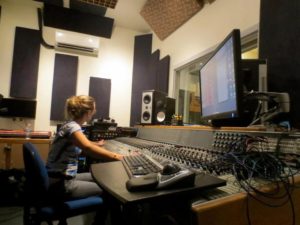
WAM studio, 2013
With a combination of referrals and reaching out to larger venues like Boom Boom Room, Elbo Room, and The Independent Maya would have more work than she could handle. Women’s Audio Mission would refer Maya to both SFJAZZ Center and Dolby. She has been at SFJAZZ Center for six years as an Audio Mix Engineer and Dolby for three years working as a Critical Listener.
What’s the environment, gear, and typical day at SFJAZZ Center?
SFJAZZ Center has two concert halls: One is Miner Auditorium, which holds 700 seats, and the other is the Joe Henderson Lab (JHL), which holds 100 seats. We have Meyer Mains (going through Galileo hardware, controlled by Compass software) and L’Acoustic (108p and 112p) Monitors for both rooms. In Miner Auditorium, we have a 16-speaker Minna line array system for each Main L/R (divided into 4 zones with separate delay times), 5 HP500 cardioid flown Subs, JM1P Side Fills, M1D Front Fills, and UPJ Rear Fills. We have a VENUE Profile at FOH and an SC48 at “Monitor Beach.” In JHL we do FOH and Monitors from a Soundcraft Si Impact, and we have 2 UPJ Mains and 1 HP500 flown Sub. We have an 8-rack patch bay (6 for Audio, 2 for Video) backstage that allows us to route signal all over the building. We have a 4-way split that, in addition to feeding FOH and Monitors, also sends to the Truck Dock, and a ProTools Suite on the third floor, where we have a Digidesign D-Command and can capture multi-track recordings of our shows into ProTools. We have a ton of in-house backline – various drum kits, amps, keyboards, percussion, and the stage in Miner can be various sizes/shapes depending on the event needs. The building is only six years old, so things are still in very good condition and well-organized.
I’ve been fortunate to work with many fantastic artists there including Esperanza Spalding, Booker T, Robert Townsend, Snarky Puppy, Ravi Coltrane, Anoushka Shankar, Chick Corea, Hermeto Pascoal, and facilitated the touring crews of Van Morrison, Herb Alpert, Sergio Mendes, En Vogue, Kid Koala, Taj Mahal, among many others. That’s how I met Rosanne Cash. She was an SFJAZZ Resident Artistic Director the past two years, and I did Monitors for her weekends there, which were collaborations with Emmy Lou Harris and Lucinda Williams the first year, and Ry Cooder the second.
A typical day at SFJAZZ Center is a call time in the early afternoon, set up the backline, patch ins/outs, and do a line check. Then the band comes in, we set up and soundcheck for an hour or two, then dinner, show, and strike. Shows range from 60-120 minutes, and in JHL we have two shows per night. We rarely have openers, and we often do 4-night runs of the same artist. We also have a fair amount of rental companies, individuals, or organizations renting out space for private events, which involve a lot more wireless, and we have two “off-site” rigs (Soundcraft Si Impact consoles and QSC speakers). We use these for our free outdoor concerts and for our middle school program in which we’re working with local musicians to bring concerts to all middle schools in San Francisco and Oakland, thanks to our awesome Education department. So a “typical day” there can have a lot of variety in the audio department.
What is a Critical Listener?
As a Critical Listener, I participate in various audio tests that provide feedback to Dolby on current and developing audio technology. Often the tests involve listening to multiple versions of the same audio and either choosing a preferred version or finding a hidden reference. We go into acoustically tuned listening labs and listen to audio on headphones or over loudspeakers, sometimes with video too, and complete whatever test we have that day. Basically, they want to know if people with critical hearing and listening skills can distinguish a perceptible difference between raw, uncompressed audio, and audio that has been digitally compressed using specific algorithms. It’s only a few hours a month, more or less, and it’s very flexible.
What is your set up for Roseanne? Gear, Work Flow: Are you touring with production. Challenges? How are you dealing with them?
There are two different setups for Rosanne: the Duo with her husband, Guitarist/Producer John Leventhal, and the Band setup, which adds Drum Kit, Bass, Guitar, and Keys to the Duo. John sets up Downstage Right and gets a single wedge. Rosanne is always Downstage Center with a mono pair of wedges and wireless IEM. In the Duo configuration, she has another wedge on her left side, almost a side fill, for just John’s channels. They both need healthy amounts of their vocals in their wedges, so the first thing I do is ring out their wedges and make the vocals sound as clear as possible with enough headroom before feedback. After a couple shows on the road, I started doubling Rosanne’s vocal channel so that I could have completely separate control over her vocal channel going to her wedges vs. in-ear. That’s been helpful. We carry the wireless IEM unit and a couple of Beta58s for vocals. In addition to Monitors, I also take care of the tour merchandise. David Mann is the Tour Manager and FOH Engineer, and there are a couple of other Monitor Engineers they work with based in New York.
As for challenges, a couple of times, the IEM audio was cutting in and out or sounded “underwater.” I dealt with it by replacing some parts of the kit like the cable that goes between the earpiece and the belt pack and the desiccant pod that absorbs moisture. I also started storing her earpiece differently to reduce strain on the connector since doing that it’s been working great. Once, the earpiece filter got loose and was making clicking sounds only Rosanne could hear. I now prevent that by making sure it’s tightly pushed in before each soundcheck and show. Another challenge is working on unfamiliar consoles. When I know, that’s the case; I do some prep work before I get to the venue, like watching tutorials and reading manuals, to head off any potential questions or obstacles I anticipate.
In between all of this, Maya still works in the studio and in 2017 released an EP with her band, Gringa called “Letters From A. Broad.” Maya produced the album and engineered most of it, as well as playing several instruments and writing three of the songs. Maya says it reflects her “style as a Producer, blending organic recordings with sound effects and pop and dub mixing techniques. It was a labor of love that took several years and involved many different musicians in various studio spaces. It was a challenge making it all come together, and at times, I thought it would never be finished, so it felt great to finally release it.” She is looking forward to putting out more records in 2019.
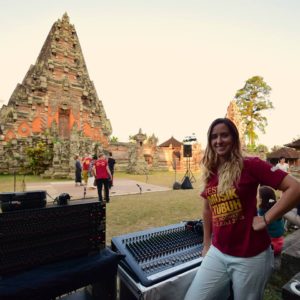
Bedulu, Bali during the International Body Music Festival, 2015
Give us a little background on what other tours you’ve done and what your position was on them
In July 2016, I spent two weeks in Bali as part of the International Body Music Festival, doing both FOH and Monitors. The annual Festival, led by master body percussionist Keith Terry, takes place in a different country each year and invites participants and artists from all over the world to come together for body percussion workshops and performances in collaboration with local communities. We stayed in Ubud as our home base and traveled to different places each show day. The first show was in a theater in Denpasar, but the rest of the time we rented gear from a local sound company and worked with their crew to load in and set up in different villages. The gear was very basic; a 32-channel Yamaha analog console, a rack of graphic EQs, and passive mains and monitors. Most of the stages were outside, open-air but covered community spaces, and I used a combination of a shotgun, PZM, and overhead mics to get subtle body percussion sounds over motorcycles and other loud street noise. It was challenging, but I had a blast and got to meet so many wonderful people.
What do you like best about touring?
I love seeing different places and meeting/working with different people. I’m used to being a House Engineer, so it’s been fun to do the opposite and be the Guest Engineer, with all the different challenges and perks that come with it. I feel more like an asset, not just an expense. I’m also really liking the simplicity of living out of a suitcase.
What do you like least?
Flying and spending time in airports. Not being able to cook my own meals.
What is your favorite day off activity?
On tour – Sleeping in.
At home – Writing, playing, and producing music.
What do you like best about the Studio?
I love the creative possibilities in the studio. There’s more time to play around and come up with unique sounds and effects and to use panning and mic positioning that I can’t necessarily do in live sound. I’m fortunate that live sound is my bread-and-butter, so any studio stuff I do is on my terms and for pleasure.
What do you like better Live or Studio?
That’s a really tough question and probably changes from day-to-day. I enjoy the immediacy and social aspects of Live, as well as being part of an event that brings joy or release for others. However, I also love being able to experiment in the Studio and being part of the magic that will be immortalized on a record. In the long run, I’d like to get back to doing more Studio work, and in particular trading, out some of the grunt work, I do in live sound for more creative studio work.
What if any obstacles or barriers have you faced?
Although initially, I loved the lack of routine, over the years, I’ve experienced how hard it is on the body to work inconsistent hours and to eat and sleep at irregular times. My circadian rhythm is all off, and my health and social life have suffered for it.
Also, I wanna be real about the fact that the industry is still primarily a (White) Boys Club. As a woman, I’ve experienced microaggressions, objectification, and everyday sexism all throughout my career (such as being told to smile while I work, getting patted on the head for doing a good job, being asked to wear a skirt at a job interview, overhearing musicians ask “Where’s the Sound Guy?” while I’m on stage doing my job…I could go on). I hesitate to call it an obstacle because it never really held me back. In fact, it probably propelled me forward in some ways. But it’s annoying at best, and exhausting over time. I do see that women, non-binary folks, and people of color have to work much harder for the same recognition and advancement opportunities as white men.
How have you dealt with them?
In terms of my health, I started prioritizing jobs that didn’t end so late, in an attempt to sleep regular hours each night. I still don’t, but it’s less erratic than before. I also started cooking more on my days off and meal planning, so I could bring healthier food to work and not skip meals. I’ve had to develop a discipline around resisting free booze and junk food, which is a work-in-progress.
As for the Boys Club, I’ve had to just ignore a lot of shit, figure out who my true allies are and which battles are worth fighting, and ultimately prove myself in my work. I have learned to find the joy in smashing stereotypes and the humor in witnessing that my existence cause squirming or heads exploding. I enjoy poking holes in the patriarchy every time I go to work, and I try to stay involved in networks like WAM and SoundGirls, where we can share experiences, knowledge, and resources.
The advice you have for other women and young women who wish to enter the field?
Don’t let your insecurities limit you. Take as many opportunities to learn and gain experience as you can. If you’re unsure of the equipment, you’re using or the type of gig you’re doing, do some homework. Read some manuals, watch some tutorials, get yourself prepared, and then jump in.
Don’t let others intimidate you out of it. It may seem like there’s a way you’re supposed to look and act, but that’s because the job has been portrayed a certain way for so long.
Embrace your skills and what makes you unique.
Have a sense of humor, drop the ego, be professional, humble, and kind. There’s nothing more refreshing than a friendly engineer and a crew that’s having fun. There are plenty of grumpy sound people out there…don’t be one of them!
Must have skills?
I think the best sound engineers have a trifecta of interpersonal, technical, and musical skills: I treat it like a customer service job. I’m there to serve the needs of the Artist, the audience, and the venue, not my ego. I do my best to communicate well and try to make everyone happy. It’s important to be able to adapt quickly to new technology and have strong attention-to-detail. It helps to have a musical background, to be able to relate to musicians and know musical terms and genres and to have an ear for music.
Favorite gear?
To be honest, I’m not really a “gear head.” On tour, I request an Avid SC48 or Profile console, because I’m quickest on those. I love my vintage Telefunken 421 and UA 710 Twinfinity preamp that I have in my home studio. But ultimately I’d say my ears are my favorite gear. They’re more important than anything I could buy, and it’s been a process learning to trust them and understand them better.
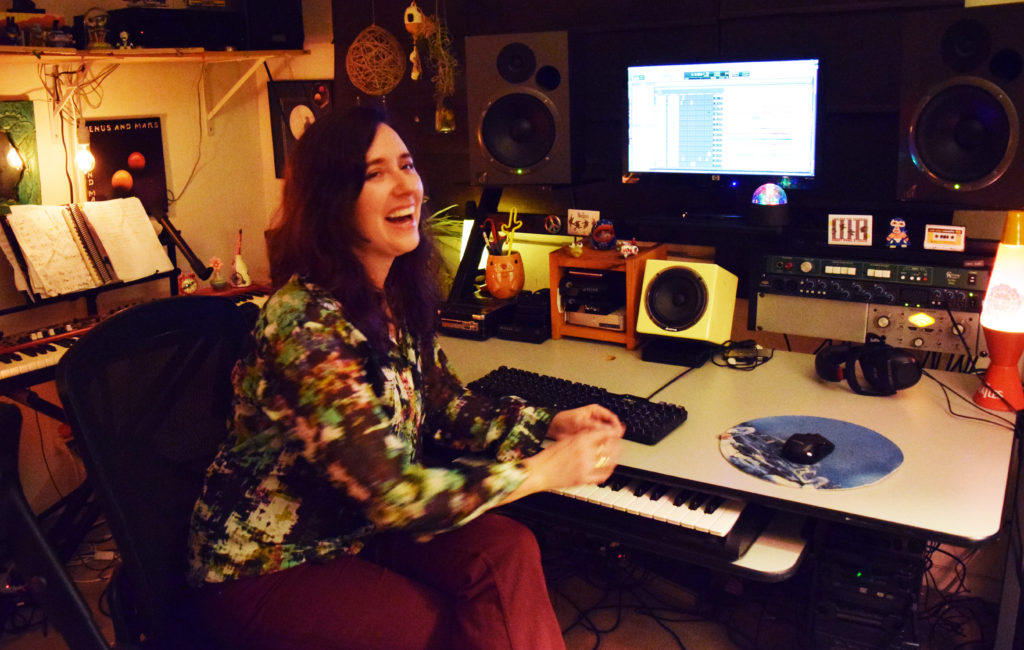



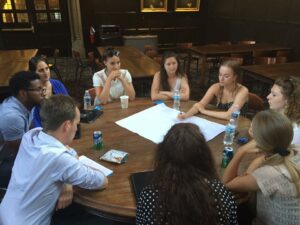
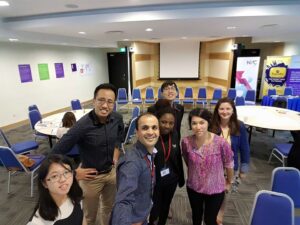

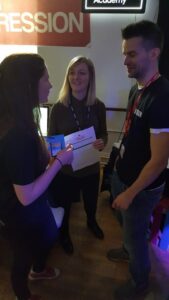

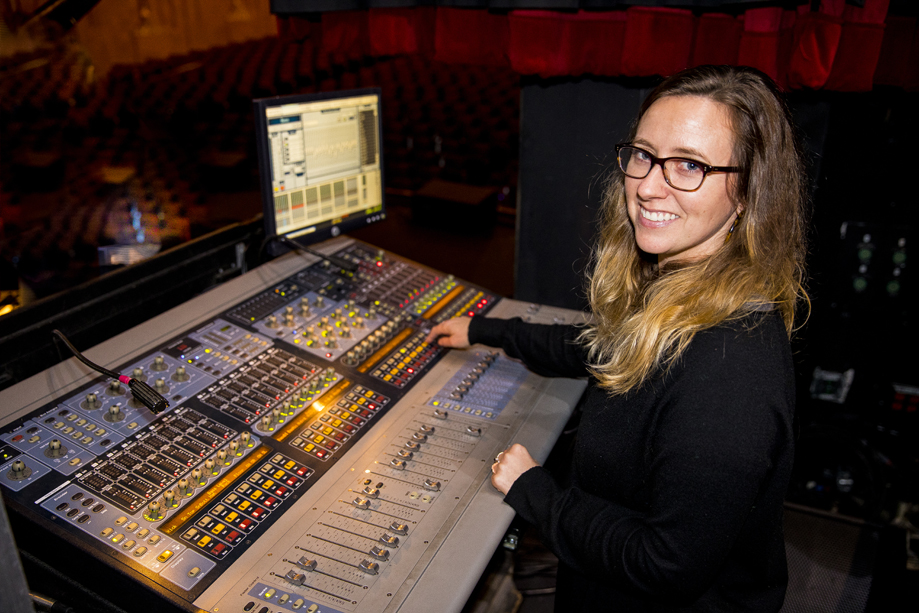





 50/50 gender balance pledge extended to more of the music industry
50/50 gender balance pledge extended to more of the music industry
 ‘You lift with your mind, not with your muscles’: female sound engineers on working in audio
‘You lift with your mind, not with your muscles’: female sound engineers on working in audio
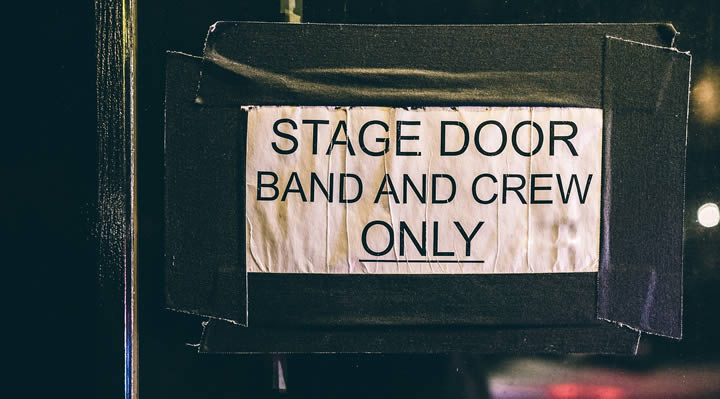

 Industry Insights: Linda Perry, Sylvia Massy & TRAKGIRL On Making Great Recordings
Industry Insights: Linda Perry, Sylvia Massy & TRAKGIRL On Making Great Recordings